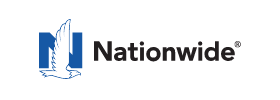New COVID-19 guidelines from the Occupational Safety and Health Administration (OSHA) released under President Joe Biden’s administration signal a more proactive approach toward protecting U.S. workers from COVID-19.
The new guidance seeks to protect all types of workers, not just those deemed to be at higher risk of contracting COVID-19 depending on where they work. The guidance also asks employers to shield workers from retaliation if they have concerns about unsafe work conditions. The guidance also looks to establish ways for employees to voice work-related concerns anonymously. In general, OSHA wants employers to give their staff a bigger say in developing workplace safety protocols. Such protocols already require employers to enforce 6-foot distancing and face mask wearing, both of which are carryovers from former President Donald Trump’s administration.
The Biden administration is also pushing for some federal emergency standards that could carry more legal weight— something labor advocates have been wanting. OSHA has until March 15 to decide if it will issue those standards. OSHA also announced that it is resuming public announcements on workplace fines for unsafe conditions.
It is important that businesses remain vigilant during these unprecedented times, providing safe and healthy workplaces for all employees. This new guidance from the Biden administration may help workers in high-risk sectors maintain their unemployment benefits and avoid unsafe work, even if doing so puts added pressure on business owners.
For additional safety guidance and insurance information, contact Midwest Professional Insurance.
Workers’ Compensation Premium Audit Tips
At the end of every workers’ compensation policy period, insurance carriers conduct audits to ensure that paid premiums accurately reflected a business’s operations over the duration of the policy period. This is necessary because premiums paid at the beginning of the policy period are only estimates based on projected payroll and assigned employee classification codes.
These audits can be done by phone, mail, or in-person, depending on the assigned auditor. Workers’ compensation premium audits are very common and, once completed, can indicate if any additional premium is owed, or if any credits need to be returned or applied to the next policy. Some business owners select “pay as you go” workers’ compensation policies to help reduce their exposure to large audit balances. Premiums for these types of policies are based on actual payroll and are reported/paid in real-time, contrary to that of traditional estimated programs.
However, the COVID-19 pandemic has complicated the audit process, thus affecting workers’ compensation premiums. It is important to know that there is no guarantee of the return of workers’ compensation premium credits due to the pandemic. To give your company the best chance of receiving a returned premium credit, it is critical to maintaining proper recordkeeping.
Other important items to note include:
- Payments to paid furloughed employees—If you have continued paying employees to stay home and not work while your business operations have been suspended because of a federal, state, or local emergency order, you need to identify the wages your company has paid to furloughed employees and provide them to your auditor during your audit.
- Temporary changes in your business operations—If you temporarily change your operations because of a federal, state or local emergency order, you must identify these changes. Such operational adjustments may affect the rating and classifications of your policy.
- Employees working from home or being assigned different job duties—If your employees are temporarily being paid to work from home or have been assigned different job duties, you must note this on your payroll records and provide these new duties to your auditor.
It is in your best interest to know your workers’ compensation classification codes, payroll, and subcontractor payments prior to any audit. For more information on how to prepare for workers’ compensation audits, contact us today.
Audit Tip
Have all Independent Contractors provide a certificate of insurance stating that they purchased workers’ compensation insurance.


















